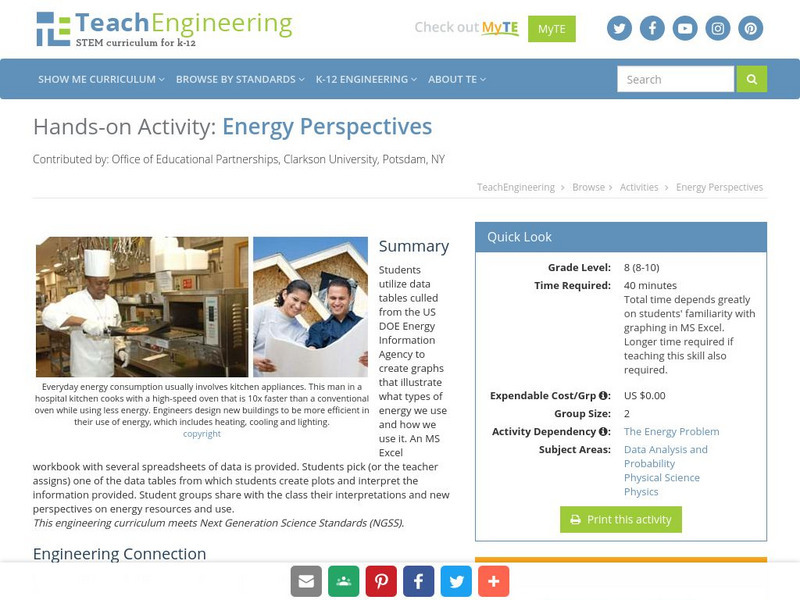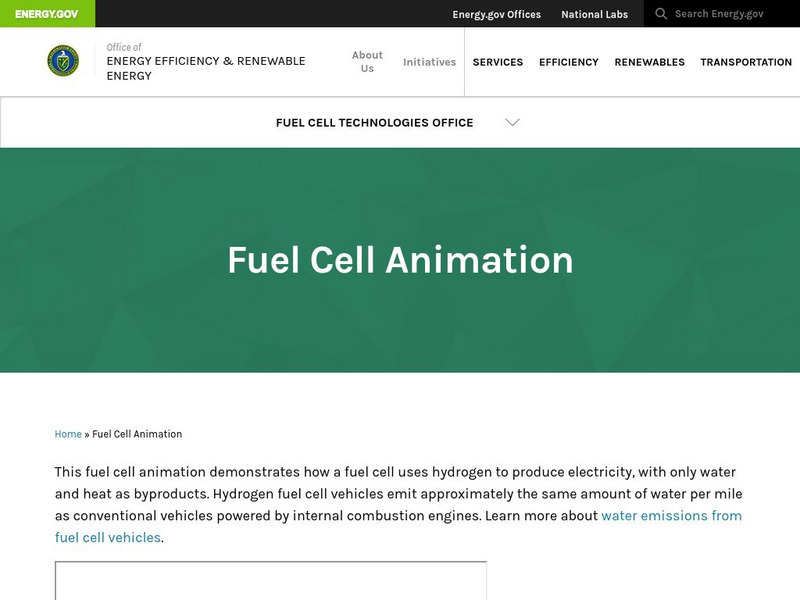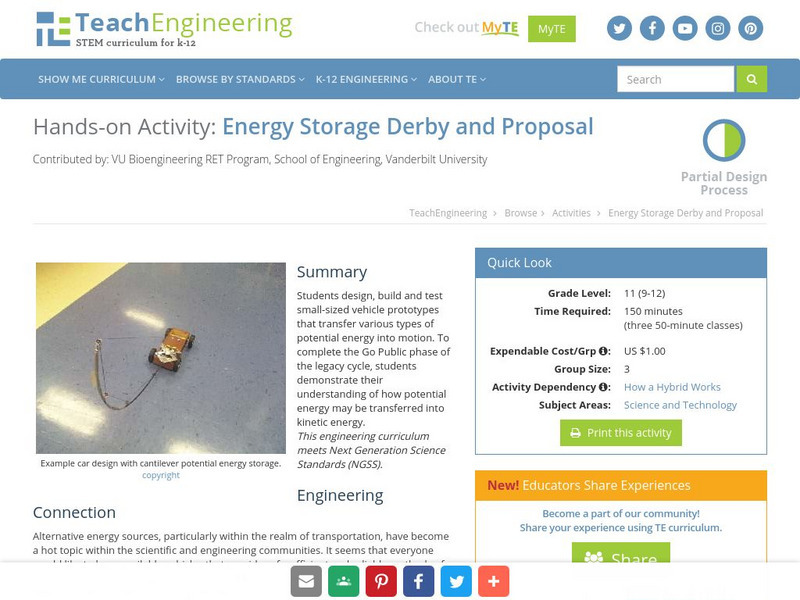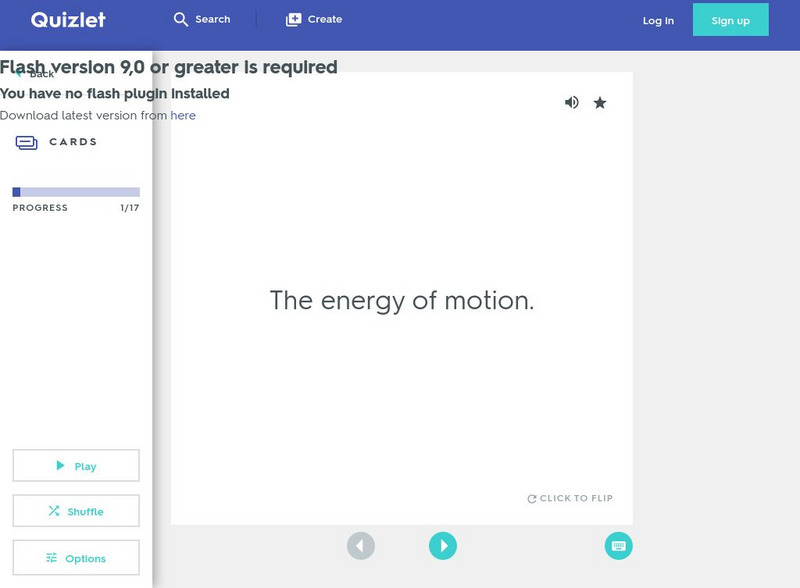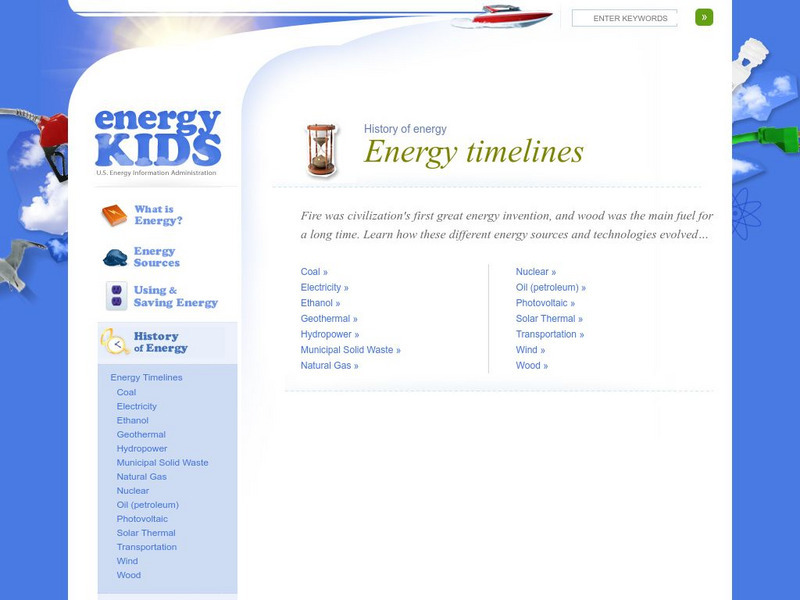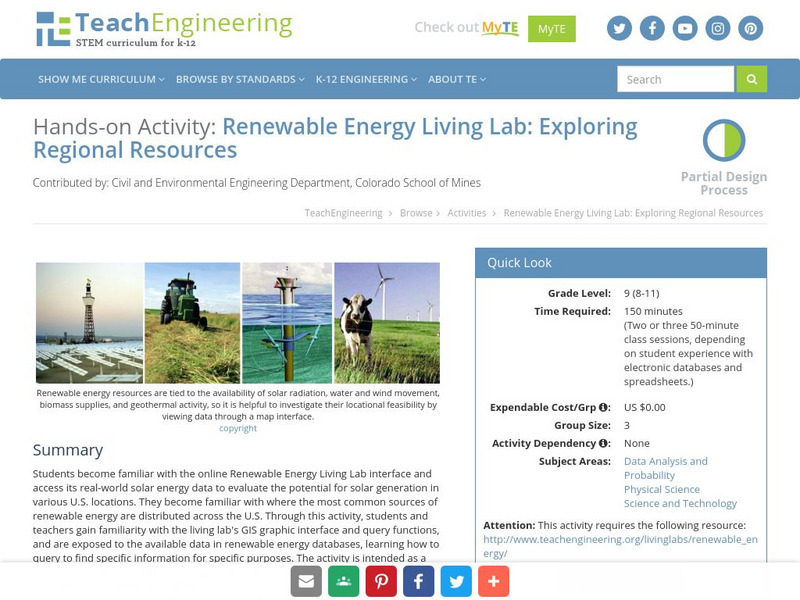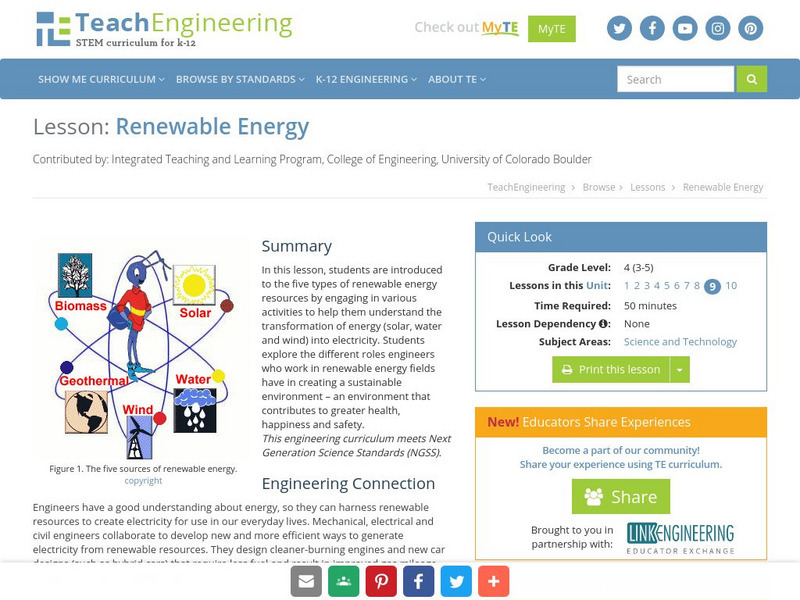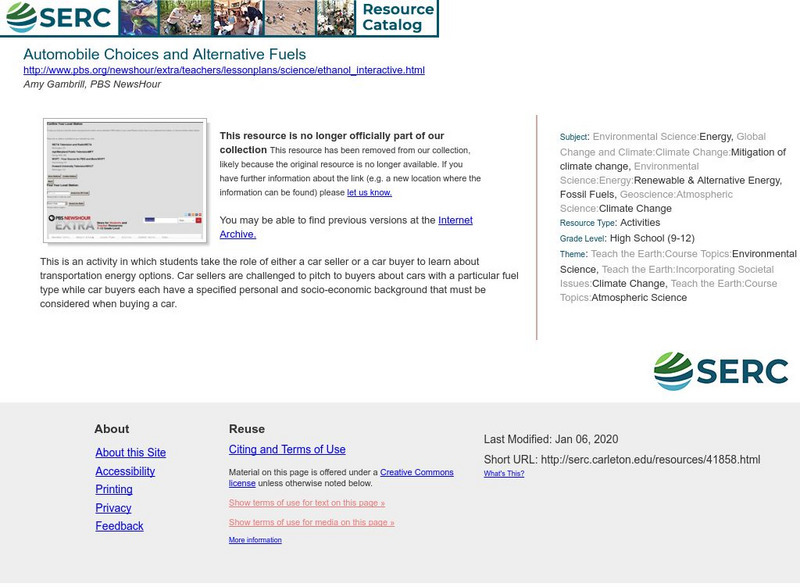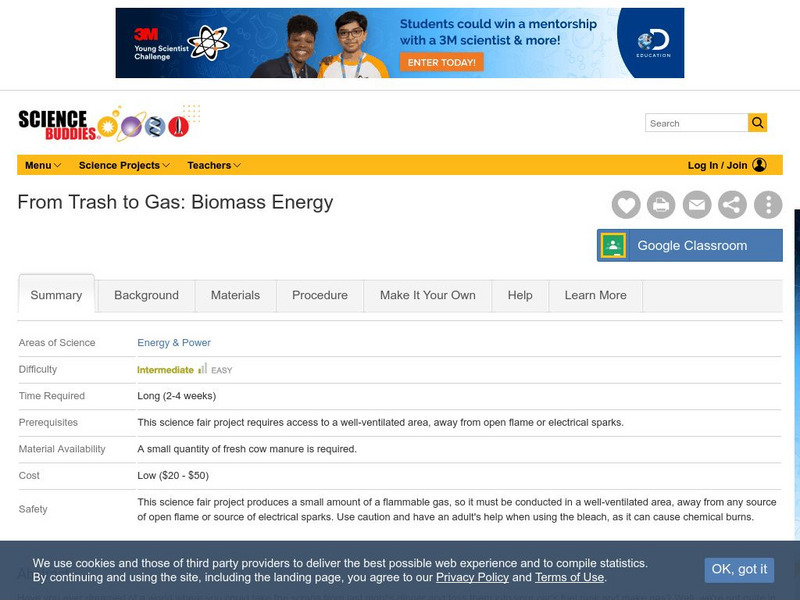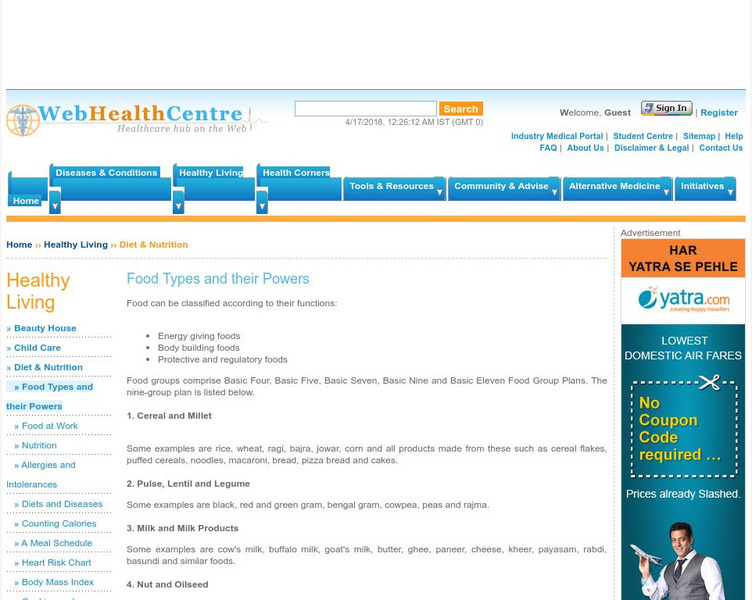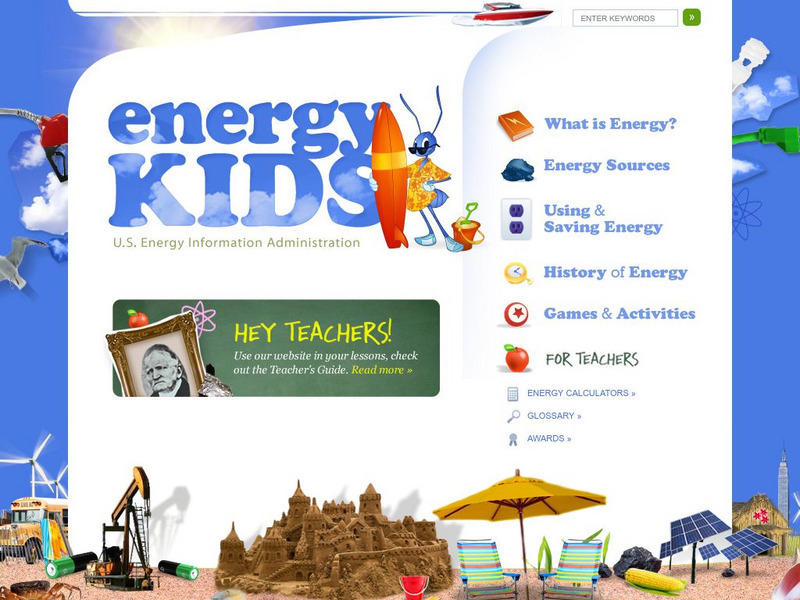Hi, what do you want to do?
TeachEngineering
Teach Engineering: Energy Perspectives
Students utilize data tables culled from the US DOE Energy Information Agency to create graphs that illustrate what types of energy we use and how we use it. An MS Excel workbook with several spreadsheets of data is provided. Students...
US Department of Energy
U.s. Department of Energy: Fuel Cell Technologies Program: Fuel Cell Animation
A series of animated illustrations show how a polymer electrolyte membrane fuel cell works. PEM fuel cells are the most common type used in flex-fuel vehicles.
TeachEngineering
Teach Engineering: Energy Storage Derby and Proposal
In Activity 5, as part of the Going Public step, students demonstrate their knowledge of how potential energy may be transferred into kinetic energy. Students design, build and test vehicle prototypes that transfer various types of...
US Department of Energy
U.s. Department of Energy: Coal: Our Most Abundant Fuel
The U.S. has enough coal to last for the next 200-300 years. So why are we not using more of it? This article describes the different types or "ranks" of coal, the history, and the problems with burning coal for energy.
Canada Science and Technology Museum
Canada Science and Technology Museum: Background Information for Energy
Energy! What do you know about it? Use this terrific site to find out everything about it through a series of Q&As. Educators will find useful lesson plans at the related Teacher's site.
US Department of Energy
U.s. Department of Energy: Water Power Program: Types of Hydropower Plants
Learn about the three types of hydroelectric power plants used to capture the energy from water at a hydropower dam site.
US Department of Energy
U.s. Department of Energy: Energy Basics: Renewable Energy: Biomass
Find out about the renewable energy resource using biomass technologies. Learn about the three main types of biomass and how the stored energy from the sun is captured for use.
Alabama Learning Exchange
Alex: Energy and Work Amusement Park Style
This is a lesson plan presenting energy and work. It covers: types of energy, forms of energy, work, law of conservation of energy, and renewable and nonrenewable energy sources. In the activities section, one will find links to Internet...
Quizlet
Quizlet: 6th Grade Science: Energy Vocabulary: Flashcards
This set of interactive flashcards focuses on 17 terms related to energy and their definitions. These include the following types of energy: Kinetic, Sound, Potential, Elastic potential, Chemical, Gravitational Potential, Electrical,...
Science Buddies
Science Buddies: Project Ideas: Growing Green: How to Extract Energy From Grass
In this energy science fair project, the student will experiment with three types of grasses and determine which variety yields the highest amount of biomass. The Science Buddies project ideas are set up consistently beginning with an...
US Energy Information Administration
U.s. Eia Energy Kids: Energy Timelines
Research different types of fuel to see when major developments occured in their use. Fourteen different types of fuels can be researched, including fossil fuels and alternative fuels.
American Museum of Natural History
American Museum of Natural History: Ology: Rising Co2! What Can We Do?
With this resource, students learn how much fossil fuel emissions have increased since 1600 by exploring a graph showing carbon dioxide in our atmosphere. Then answer questions and read facts about climate change over the centuries....
Scholastic
Scholastic: Study Jams! Science: Energy, Light and Sound: Renewable Fuels
A slideshow and a short quiz on the different types of renewable energy sources.
TeachEngineering
Teach Engineering: Renewable Energy Living Lab
Students become familiar with the online Renewable Energy Living Lab interface and access its real-world solar energy data to evaluate the potential for solar generation in various U.S. locations. They become familiar with where the most...
TeachEngineering
Teach Engineering: Energy Conservation
Students are introduced to the idea that energy use impacts the environment and our wallets. They discuss different types of renewable and nonrenewable energy sources, as well as the impacts of energy consumption. Through a series of...
TeachEngineering
Teach Engineering: Renewable Energy
In this lesson, students are introduced to the types of renewable energy resources. They are involved in activities to help them understand the transformation of energy (solar, water and wind) into electricity. Students explore the...
TeachEngineering
Teach Engineering: My Moon Colony
Students are introduced to the futuristic concept of the moon as a place people can inhabit. They brainstorm what people would need to live on the moon and then design a fantastic Moon colony and decide how to power it. Student use the...
US Energy Information Administration
U.s. Eia Energy Kids: Renewable Energy: Wind
Mankind has used the wind as an energy source for thousands of years. Discover other ways the wind is used to make energy.
Science Education Resource Center at Carleton College
Serc: Automobile Choices and Alternative Fuels
This is an activity in which students take the role of either a car seller or a car buyer to learn about transportation energy options. Car sellers are challenged to pitch to buyers about cars with a particular fuel type while car buyers...
Science Buddies
Science Buddies: From Trash to Gas: Biomass Energy
Have you ever dreamed of a world where you could take the scraps from last night's dinner and toss them into your car's fuel tank and make gas? Well, we're not quite in "Back to the Future" yet, but in this energy science fair project,...
Science4Fun
Science4 Fun: Biomass Energy
What is biomass? Learn about the different types of biomass energy, how it is released, and the advantages and disadvantages of biomass.
Michigan Reach Out
Newton's Apple: Body Fat
Through these lesson plans, investigate the different types of fat found in food and found in the human body. Discuss the functions and problems associated with dietary fat and make wise food choices based on what you learn about fat,...
Other
Web Health Centre: Food Types and Their Powers
This website describes the nutritional values of different types of foods. Learn what types of foods are sources of carbohydrates, proteins, fats, vitamins, and minerals through a chart provided at the bottom of the page.
US Energy Information Administration
U.s. Eia Energy Kids
This extensive resource provides information on renewable energy, nonrenewable energy and energy conservation.





